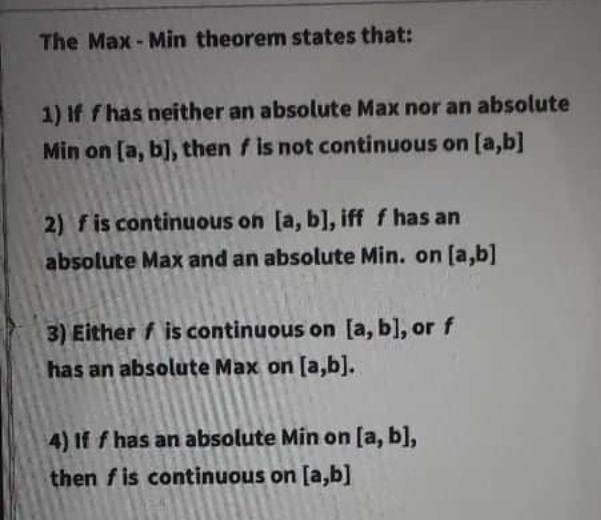Answered step by step
Verified Expert Solution
Question
1 Approved Answer
The Max- Min theorem states that: 1) If f has neither an absolute Max nor an absolute Min on [a, b], then f is

The Max- Min theorem states that: 1) If f has neither an absolute Max nor an absolute Min on [a, b], then f is not continuous on [a,b] 2) fis continuous on [a, b], iff f has an absolute Max and an absolute Min. on [a,b] 3) Either f is continuous on [a, b], or f has an absolute Max on [a,b]. 4) If f has an absolute Min on [a, b], then f is continuous on [a,b]
Step by Step Solution
★★★★★
3.39 Rating (158 Votes )
There are 3 Steps involved in it
Step: 1

Get Instant Access to Expert-Tailored Solutions
See step-by-step solutions with expert insights and AI powered tools for academic success
Step: 2

Step: 3

Document Format ( 2 attachments)
635db13573073_178057.pdf
180 KBs PDF File
635db13573073_178057.docx
120 KBs Word File
Ace Your Homework with AI
Get the answers you need in no time with our AI-driven, step-by-step assistance
Get Started


